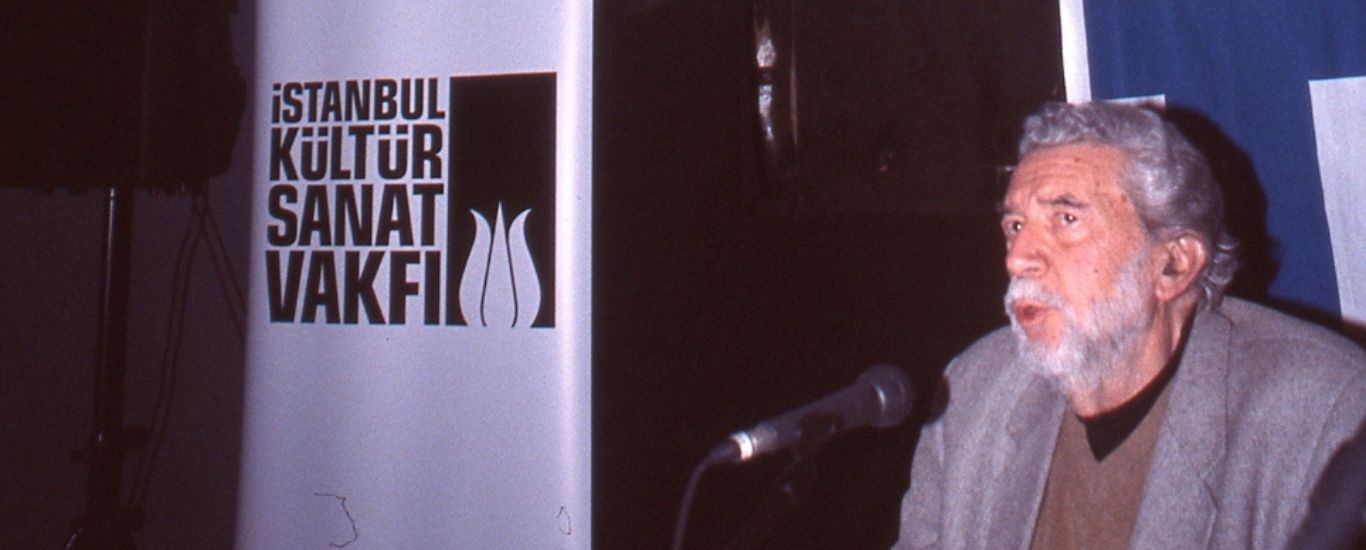Alain Robbe-Grillet, one of the most innovative artists of the 20th century, says: "If we are to turn back and look at it, the past cannot stand our stare, it just disintegrates."
This writer and filmmaker who emphasizes that objectivity in art is impossible, that all is subjective, comes up with the result that the meaning of reality (and our past) is our own creation. One is left to construct one's own story by oneself. Alain Robbe-Grillet was born on 18 August 1922, in Brest, Finistère, in northwestern France, to a family of scientists and engineers. At the start, he chooses science, too, and 1945 he receives a diploma from the National Institute of Agronomy. From 1955 on, Robbe-Grillet chooses the path of literature. Robbe-Grillet wrote his first novel, A Regicide in 1949. In 1951 he wrote The Erasers, which makes him one of the leaders of the nouveau roman (New Novel) group. In Alain Robbe-Grillet's cinema adventure starting in 1961, it is possible to trace all these stylistic and thematic elements that he first introduced through the "new novel", which he sees as constitutive in the invention of the "new man." His almost visual narrative world where only the objective details are described, and his novels where he adopts a semi-camera viewpoint, brings Alain Robbe-Grillet and Alain Resnais together, and the result is L'Année dernière à Marienbad / Last Year at Marienbad. Robbe-Grillet's primary aim in cinema is to overthrow the realistic narration in order to replace it with the subjective operation of the mind and the affective realm. While interpreting Robbe-Grillet's films, where the reality is always questioned and shaped and reconstructed permanently through language and plays, we do create our own reality, our own myth, and at that point, Alain Robbe-Grillet may be winking at us, playfully.
- Nermin Saatçioğlu







